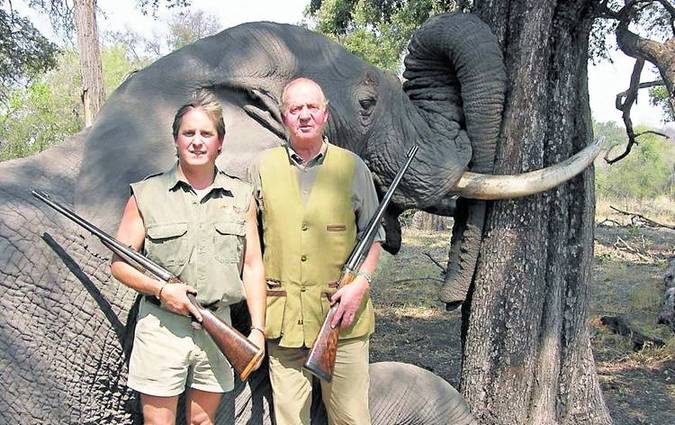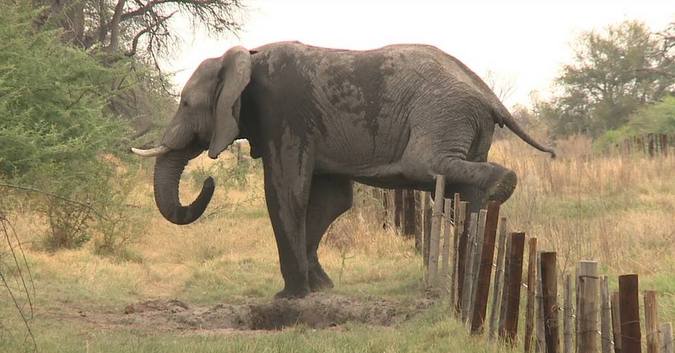
Sourced from third-party site: Botswana Government/Facebook
The Botswana parliament has adopted a motion tabled by Maun East MP Mr Kostantinos Markus requesting the government to consider lifting the ban on the hunting of elephants in areas that are not designated as game reserves and national parks, to reduce the elephant-human conflicts that are a serious issue for poor rural people.
Debating the motion, the Vice President and Boteti West MP, Mr Slumber Tsogwane said the human-wildlife conflict had over the years been rife, primarily due to an overlap between the human population and wildlife. The human-wildlife conflicts, he said, had been prevalent in the Boteti constituency, where large numbers of elephants roamed freely in marginal rangelands. The increase in human population had also resulted in the encroachment into more marginal lands inhabited by wildlife.
The Vice President said conflicts between people and wildlife currently ranked among the main threats to conservation countrywide, adding that with much of the wildlife living outside protected areas, one of the real challenges to conservation is how to enhance and sustain coexistence between people and wild animals in those areas.
He said the increase of the elephant population had also affected the land conservation plans as they tend to over-graze and destroy the natural landscape.
“Given the economic and social importance of both wildlife-related activities and agriculture, balancing the relationship between wildlife species and agricultural production is critical if the needs of all of the respective interest groups involved with these commodities are to be met,” he said.
He emphasised that the motion should not be regarded as a leeway to promoting poaching of elephants as the government would implement stringent measures to protect elephants and other wildlife spies.

Mr Tsogwane said an understanding of how people and conservation agents dealt with the problem of wild animals was critical in evolving and establishing sustainable conservation systems. He said that the government would consult with all the relevant stakeholders to facilitate human-wildlife coexistence.
Tati East MP, Mr Samson Guma argued that it was undoubtedly evident that the expansion of human society had forced people to infringe into wildlife habitats and convert land to other uses incompatible with wildlife.
Mr Guma said smallholder farmers living along the Botswana/Zimbabwe border fence had struggled for years with elephants that regularly invaded their land and destroyed their crops. The majority of those farmers, he said, settled along the borderline to benefit from rivers that do not only act as demarcation boundaries between the two countries but also have water in abundance all year round.
Mr Guma said that the story of elephant farm invasions in his constituency was heartbreaking as a week hardly passed without elephants raiding farms and ploughing fields.
“Elephants inhabiting the nearby parks easily stray outside park perimeters in search of forage, water and a place to breed, thereby destroying everything on their path,” he said.
He said both elephants and human population density in the area had become high and as a result the competition for resources between the two had intensified; hence efforts of many subsistence farmers in the area to become commercial were more like a lottery than a livelihood.
Mr Guma therefore said government should swiftly act on how best to resolve the human/wildlife conflict and that the lift on the hunting ban and shooting of elephants in areas not designated as game reserves could be remedial to the crisis.
To comment on this story: Login (or sign up) to our app here - it's a troll-free safe place 🙂.![]()






